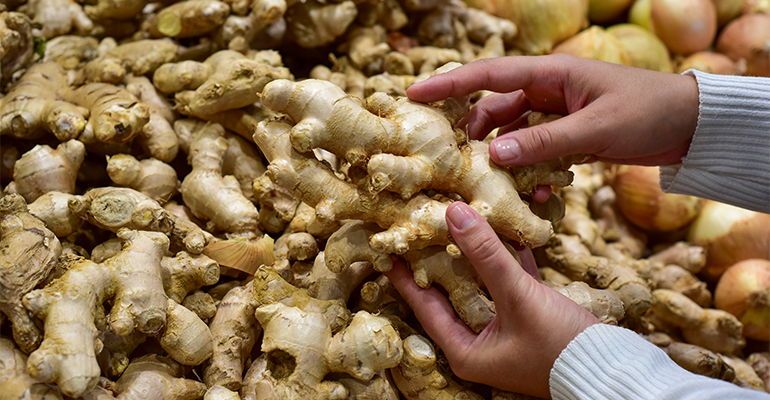News
UNIDO highlights food system transformation as a driver of industrial growth
8 May 2025Agroprocessing and food innovation are driving industrial development, with Senegal and Brazil offering examples of targeted national strategies.
The 2024 Industrial Development Report from the United Nations Industrial Development Organization (UNIDO), published in April, identifies food systems as critical to achieving inclusive industrial growth.

It highlights agroprocessing and food innovation as effective tools to address rising demand, inflation, and employment challenges.
With sub-Saharan Africa’s working-age population projected to double by 2050, the report, Turning Challenges into Sustainable Solutions, calls for updated industrial policies to meet shifting consumption patterns and build resilience through domestic food production and processing.
Senegal targets inclusive growth through agro-industrial zones
Senegal features as an example of industrial policy built around agroprocessing.
The country is implementing Special Agro-Industrial Processing Zones (SAPZs), spatially targeted industrial development hubs designed to link agricultural production with processing infrastructure and trade corridors. These zones aim to reduce post-harvest losses, increase rural employment, and enhance food security.
The SAPZ approach is central to the country’s Plan for an Emerging Senegal 2035. Five regional “agropoles” are being developed by the Ministry of Industrial Development and Small and Medium Industries in partnership with development banks and international agencies.
The hubs are designed to scale up local processing of cereals, legumes, and horticultural crops while integrating water management, cold storage, and packaging infrastructure.
Agriculture accounts for a significant share of GDP and employment, and expanding processing capacity helps absorb rural labour, improve productivity, and reduce the country’s dependence on imported foods. The agro-industrial strategy also supports the development of rural economies and connects them to national and regional markets.
The African Development Bank (AfDB), which has committed $1.1 billion to SAPZs in 13 African countries, sees the initiative as a core part of its food systems strategy. AfDB president Akinwumi Adesina said in April that the zones would “transform Africa into an industrial powerhouse for food and agriculture”.
In southern Senegal, the Agropole Sud project alone is projected to create 14,500 direct jobs by 2025, with 50% earmarked for women and 60% for youth. It is also expected to benefit 65,000 rural households through improved market access, training, and integration into formal value chains.
SAPZs are supported by international development institutions, including UNIDO, the World Bank and the Islamic Development Bank, as a means to overcome persistent structural challenges in African agro-industrial development such as weak infrastructure, fragmented supply chains, and limited investment in food processing SMEs.
However, Senegal has also faced challenges in scaling up and transforming agriculture and food production.
In April, the Associated Press reported that US registered company African Agriculture failed to deliver on a planned 20,000-hectare alfalfa export project near Lake Guiers. The company is facing legal claims over unpaid wages and local authorities are pushing to return the land to public use.
Such failures reflect broader concerns about land governance and investment oversight across the continent.
According to think tank Geopolitical Intelligence Services, Africa accounts for 37% of large-scale global agricultural investments, but just 11% of contracted land is under cultivation.
Brazil builds innovation capacity in alternative proteins
In Latin America, UNIDO has found that industrialisation of the food sector is increasingly driven by high-tech innovation.
Brazil’s southern state of Paraná is developing a research and production ecosystem focused on cultivated meat and alternative proteins, as part of a broader push to adapt traditional animal protein production to emerging global trends.
Led by the Araucária Foundation, the initiative involves three universities and has secured $1.1 million in funding to establish and upgrade laboratories, develop local cell lines and bioreactors, and offer new academic courses.
The project is designed to enhance Brazil’s competitiveness in the global alternative protein market while leveraging its established role in conventional livestock production.
Paraná currently accounts for a third of Brazil’s chicken production, 21% of pork, and nearly 14% of milk output. By investing in cellular agriculture, the state is seeking to position itself at the forefront of sustainable food innovation, aligning with global trends in gene editing, synthetic biology, and precision fermentation.
Brazil has also been identified as a region to watch in the global AgriFoodTech landscape. The 2024 FoodTech 500, published by Forward Fooding, lists the country among several emerging innovation hubs, alongside Spain, West Africa, and the Gulf Cooperation Council region.
Brazil’s focus on scaling sustainable food production positions it to play a growing role in the development of novel ingredients and processing technologies.
Related news

Will Trump lower tariff hikes?
25 Apr 2025
The US President’s plan to reduce the 145% tariffs on China’s food and beverage market raises questions over whether a turnaround is likely for other regions.
Read more
Global consumers enjoy food less and perceive it as less healthy
20 Mar 2025
Enjoyment of food and its perceived healthiness is dwindling among most global populations, according to findings from Gallup and Ando Foundation/Nissin Food Products.
Read more
Seafood set to ‘dethrone’ poultry as protein growth king
19 Mar 2025
Seafood is poised to surpass poultry as the leading contributor to global protein supply growth this year, according to Rabobank’s latest protein outlook.
Read more
Crop failures threaten Nigeria’s ginger industry
28 Feb 2025
A sharp drop in Nigerian ginger production is affecting global supply chains, with exports falling by 74% due to a severe outbreak of ginger blight.
Read more
Have scientists discovered a new tool to measure UPFs?
19 Feb 2025
Researchers have developed a new scoring system and database, compiling over 50,000 food items, of which over 1,000 are classified as ultra-processed.
Read more
Singapore explores farmland-free food production
17 Feb 2025
Researchers discover new technology replicating on-farm food production conditions from within the indoor lab environment.
Read more
Most consumers lack trust in AI, but supplement users are ready to embrace the technology
14 Feb 2025
A survey of UK and US consumers found that most supplement users are willing to let AI make decisions on their behalf, but they also demand greater transparency.
Read more
Disruptor brands spearhead sustainable solutions
11 Feb 2025
Manufacturers, big and small, sharpen their focus by providing sustainable products and services centred on comprehensive and sustainable approaches to traditional methods.
Read more
RSPO prepares for next stage of sustainable palm oil production
6 Feb 2025
The Roundtable on Sustainable Palm Oil (RSPO), a global standards and governance body, is advocating for stronger regulations and frameworks, and taking action to plug supply chain and traceability interruptions.
Read more
Low-hanging fruit for the blended meat industry? Jackfruit’s potential as a high-fibre, clean-label ‘hybrid’ ingredient
23 Jan 2025
As consumer demand for more sustainable, clean-label meat alternatives and hybrid meat ingredients grows, Fiber Foods is positioning jackfruit as a key solution to solve taste, nutritional, and processing issues faced by other blended meat products.
Read more